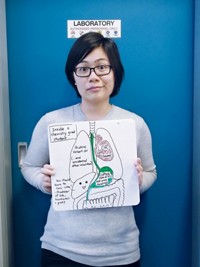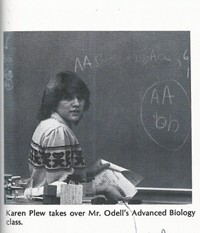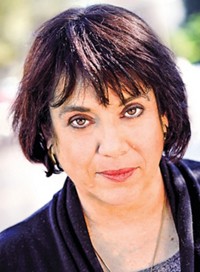Advertisement
Grab your lab coat. Let's get started
Welcome!
Welcome!
Create an account below to get 6 C&EN articles per month, receive newsletters and more - all free.
It seems this is your first time logging in online. Please enter the following information to continue.
As an ACS member you automatically get access to this site. All we need is few more details to create your reading experience.
Not you? Sign in with a different account.
Not you? Sign in with a different account.
ERROR 1
ERROR 1
ERROR 2
ERROR 2
ERROR 2
ERROR 2
ERROR 2
Password and Confirm password must match.
If you have an ACS member number, please enter it here so we can link this account to your membership. (optional)
ERROR 2
ACS values your privacy. By submitting your information, you are gaining access to C&EN and subscribing to our weekly newsletter. We use the information you provide to make your reading experience better, and we will never sell your data to third party members.
Careers
Communication Is Key For ACS Scholar Manuel Morone
This scientist-turned-editor also uses his skill to hone his stand-up comedy.
by Bethany Halford
February 23, 2015
| A version of this story appeared in
Volume 93, Issue 8

Magazines don’t make themselves. And this issue of C&EN—whether you’re reading it in print or in electronic format—arrived in your mailbox or inbox as a cohesive publication thanks in part to the efforts of Manuel I. Morone. Known around the office as Manny and to his friends as Fox (more on that later), Morone is one of C&EN’s four production editors. These folks are essentially the magazine’s air traffic controllers, coordinating all the disparate bits and pieces of text and artwork so that everything you see and read makes sense and ends up where it needs to be.
Had it not been for his ACS Scholar award, Morone might have never even heard of C&EN. “When you become an ACS Scholar, they give you free membership to the American Chemical Society for a year, which comes with a subscription to C&EN,” he says. “I liked to read it and hoped maybe I could one day contribute to it in some respect.” So, as his graduation from college drew closer, Morone applied for the magazine’s internship. Although he didn’t get that spot, his résumé caught the eye of C&EN’s managers, and he landed a full-time position at the magazine in 2014.
Morone says the $7,000 scholarship he received through the ACS Scholars Program helped him pay for his education at Harvard University, where he majored in chemistry and physics with a minor in computer science. He also developed some journalism chops as an undergrad, serving as a news editor at the Harvard Crimson newspaper as well as a writing intern in the university’s School of Engineering & Applied Sciences communications office.
“I like the idea of working toward a more digestible scientific dialogue,” Morone says, noting that scientists often aim their publications only at the experts in their fields. Being able to make science understandable to a larger audience, he says, is a worthwhile challenge.
Born in Argentina, Morone moved with his family to the Chicago suburbs before his first birthday. He credits his interest in science to good high school and college teachers. He was particularly fond of his organic chemistry class at Harvard, taught by lecturer Ryan M. Spoering. Just like good science communication, he says, good teaching requires someone who’s willing to clearly explain the information, “not just broadcast it.”
In terms of hands-on chemistry, Morone spent time doing organometallic catalysis research in Tobias Ritter’s lab at Harvard. He also worked on antibody-drug conjugates at the Novartis Institutes for BioMedical Research, in Cambridge, Mass.
“Manny was always excited, eager to learn, and happy in the lab,” Ritter tells C&EN. “But what really stood out was his dry humor and cheerful attitude that was infectious to everybody around him, seemingly without him noticing.”
Morone’s sense of humor and penchant for communication has manifested in what some might consider an unlikely hobby: stand-up comedy. “When I went to school, I wanted to try stand-up comedy, and there was a group on campus that was fairly new,” he recalls of the Harvard College Stand-Up Comic Society, which he joined as a freshman and led as president during his sophomore year. “When I took the helm, there were maybe six members,” he says. “By the time I left, there were 20. Now, there are something like 45 people involved. That’s something I’m proud of.”
It’s tough to capture Morone’s dry sense of humor in print, but perhaps the tale of how he got his nickname serves as a good example. “No one names their kid Fox even though they may name their children after other animals, like Raven or Wren. And I actually met a guy named Buffalo once at Harvard. His name was Buffalo Hird,” he explains. On the first day of Morone’s high school chemistry class, the teacher was taking roll and asked if anyone went by a different name. “I said, ‘Call me Fox,’ and the rest is little-known history,” Morone says.
Later, in college, he continued to use the name Fox. “I wanted to show that a name is a meaningless thing. If it wasn’t for my driver’s license I could say I was whoever I wanted to be, and I like to highlight that by not going by my real name.” Fox, he concludes, is a good name, but so, he concedes, is Manny.
The ACS Scholars Program awards renewable scholarships to underrepresented minority students who want to enter chemistry or chemistry-related fields. For more information, go to http://www.acs.org/success.






Join the conversation
Contact the reporter
Submit a Letter to the Editor for publication
Engage with us on Twitter